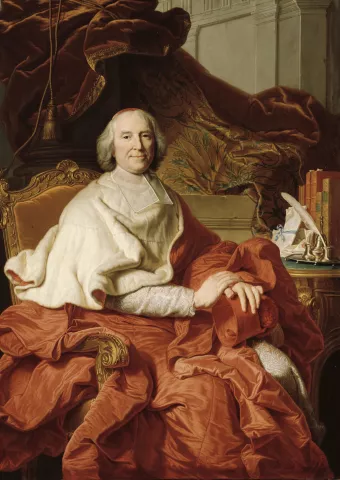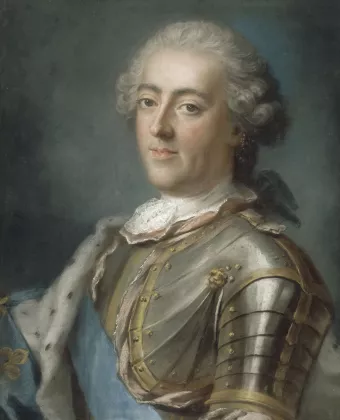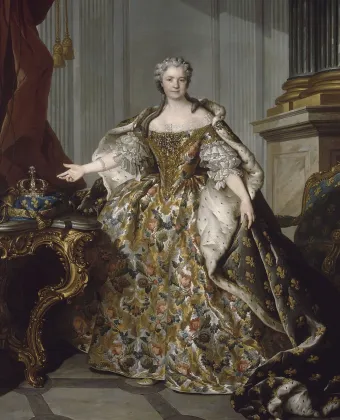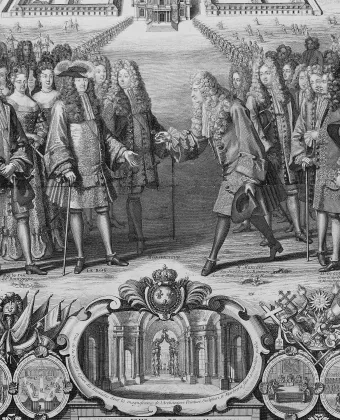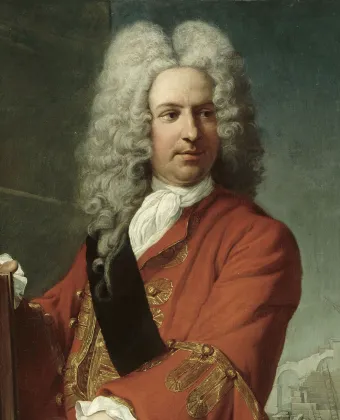Referred to by some historians as "Louis XV's Richelieu," André Hercule de Fleury studied theology at the Sorbonne before being appointed chaplain to Queen Maria Theresa in 1677, and later to her husband Louis XIV. Thus making his entrance to the royal Court, he fulfilled his ecclesiastical functions during royal religious ceremonies. In 1692 he was present at the marriage of the Duke of Orléans, future Regent, to Mademoiselle de Blois. He subsequently moved to Fréjus, where he was appointed bishop in 1699.
In 1715 Louis XIV died. In his will he named Fleury as the Preceptor of the young Louis XV. This appointment was confirmed the following year by the Regent, the Duke of Orléans. In 1717, “Monsieur de Fréjus” was elected to the Académie Française. Ten years later he finally rose to the highest rank in the realm, replacing the Duke of Bourbon as Louis XV's chief minister in 1726. In September of the same year he was made Cardinal by Louis XV. As the king's adviser and confidant, he occupied a central position in the hierarchy of the State.
ANECDOTE
In 1717, “Monsieur de Fréjus” was elected to the Académie Française. Ten years later he finally obtained the highest position in the realm, replacing the Duke of Bourbon as Louis XV's chief minister in 1726.
Cardinal de Fleury worked to achieve peace in Europe and economic stability in France, but was nonetheless unable to check the rising power of the Parliament of Paris. Moreover, despite his influence over the King, the latter still adopted an aggressive foreign policy. The elderly Cardinal de Fleury was unable to prevent the King from dragging France into the War of the Austrian Succession in 1741. After the Cardinal's death in January 1743, Louis XV decided to reign alone. He never appointed a Prime Minister to succeed “His Eternity”, a nickname attached to the Cardinal on account of his longevity.



